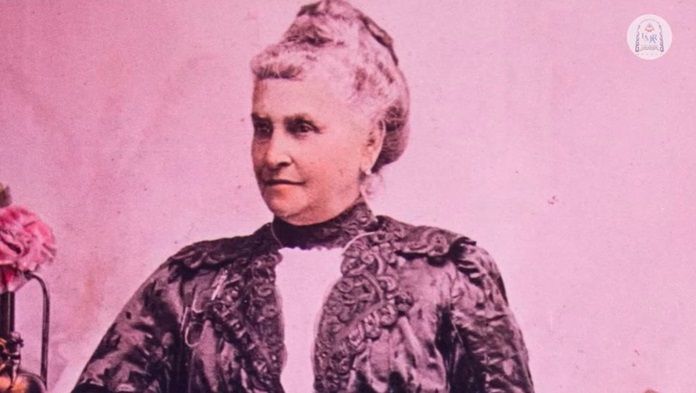Juana Cata, the woman who defied the strictest Mexican machismo
A biography written by historian Francie Chassen-López shows that Juana Cata was much more than Porfirio Díaz's Zapotec lover. Read more here.

Juana Catarina Romero. You may not recognize the name. That's normal. In school, nobody forces you to memorize the names of the mistresses of the caudillos, those who do have biographies in Wikipedia and books by the pile. Porfirio Diaz's Zapotec mistress. That is the official version of the life of this woman who dared to be free, independent, and an entrepreneur at a time when women were seen as "tender and delicious creatures" incapable of contributing to the construction of the country, as an editor of the newspaper El Día wrote in 1839.
In the 19th century, when Mexico was taking its first democratic steps and consolidating the nation-state amid a bloody struggle between liberals and conservatives, there was an unquestionable law in every family: "The pants give the orders, not the petticoats". There was, however, a woman who broke that rule by the petticoats. Her name: Juana Catarina Romero. Or Juana Cata, as her friends called her.
"As a businesswoman in commerce and agriculture, she became a modern woman. She changed her huipil and petticoat for a western dress and contributed to the modernization of Mexico from Tehuantepec, where she forged strength and political power unimaginable for a century in which women could not decide even in their own families," says historian Francie Chassen-López, who has just published the first documented biography of this central character in the formation of the national identity.
From the title of the book, there is a warning about the unknown world we are about to enter: Women and Power in the 19th Century. La vida extraordinaria de Juana Catalina Romero, cacica de Tehuantepec (Taurus, 2020). In its pages, the macho myths surrounding the figure of Juana Cata are demolished -or at least questioned-, from those supposed love affairs with Porfirio Díaz to her alleged witch abilities to talk to naguals and seduce men. It is also clarified that she was not Zapotec, but mestizo.
That lustful sorceress myth, says Chassen-Lopez, has its origin in the novels, soap operas, and even historical texts that have been written about Juana Cata in recent years. The most famous of those speeches was reproduced in one of Televisa's most successful soap operas of the 1990s: El vuelo del águila, written by Enrique Krauze and produced by Ernesto Alonso.
With sky-high ratings and a first-class cast, that telenovela featured Salma Hayek, who played the role of Juana Cata, a "man-eater", a "Zapotec beauty" that General Díaz could not resist. So much for the story of Mexico's first cacica: the exotic sexual aggressor who surprised Porfirio Díaz in his bedroom at night.
Nothing was mentioned about her work as a spy for the liberals, her skills as a military strategist, her business savvy, or her vision to modernize the poorest communities. They preferred to reduce her daily life to that of a gossipy ribbon seller instead of what she was before amassing an economic and political fortune: a brave woman who played billiards or dice with the soldiers.
Chassen-López compiles a version closer to reality in the voice of historian Miguel Covarrubias: "Juana Cata Romero, a famous beauty from Tehuantepec, who visited the barracks to play dice with the soldiers, in exchange for the coconut candy she sold. She became Diaz's best friend, his ally, and leader of his intelligence service. Diaz learned from her every movement of the enemy".
A great passion for military strategy and a solid conviction for the modernization of the country were the links that sealed the friendship between Porfirio Diaz and Juana Cata, of whom there is no historical evidence to affirm that there was a love relationship, says the researcher.
When Diaz dictated his memoirs, there was not a word about his friend: "My only friends in the city of Tehuantepec were the priest Fray Mauricio Lopez, the judge Juan A. Avendaño and Don Juan Calvo. Without those friendships to whom I owed very opportune and distinguished services, and without secret police that I established, I would have ignored absolutely everything that happened in Tehuantepec".
While it is true that Isthmian women have always been associated with the image of tough, bossy, and seductive women, it would be Manichean to believe that Juana Cata was only the archetypal Tehuana who has historically aroused the sexual desires of nationals and foreigners, says the researcher.
"The women of the 19th century were relegated from history or were reproduced in stereotypes that do not correspond to reality," she points out. In 1906, the world recognized Porfirio Díaz as The Maker of Modern Mexico. It would be worth clarifying to the international community that he was not the only one.
Source: El Sol de México




